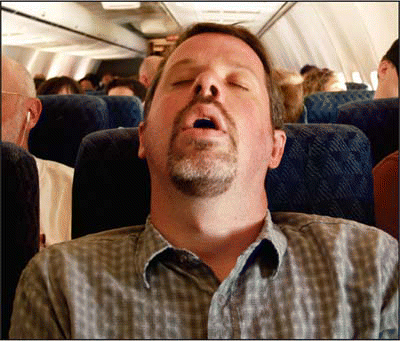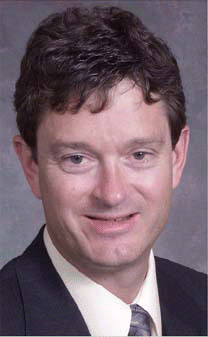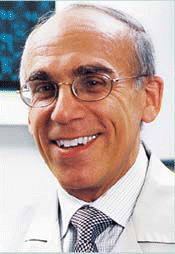Snoring is a common complaint of patients (and their spouses) treated by otolaryngologists. Experts at a panel discussion during the AAO-HNSF annual meeting cautioned that although there are good treatments for snoring reduction, complete elimination of snoring is rare. Snoring should be regarded as a condition that is managed over time. Even when snoring is improved, partial setbacks are common.
Explore This Issue
April 2008You have to set realistic expectations for patients. Snoring can come back after it is treated, and it is almost never eliminated entirely. First make sure that the problem reported by the patient is actually simply snoring and not obstructive sleep apnea, said Edward M. Weaver, MD, Associate Professor of Otolaryngology and Surgical Program Director of the Sleep Disorders Center at the University of Washington School of Medicine in Seattle, who moderated the panel discussion.
Rule Out Sleep Apnea
Sleep apnea is associated with cardiovascular and other morbidity. Panelists agreed that sleep apnea should be ruled out by an overnight sleep study, although this is controversial among community otolaryngologists. B. Tucker Woodson, MD, Professor and Chief of the Division of Sleep Medicine and Department of Otolaryngology and Communication Sciences at the Medical College of Wisconsin in Milwaukee, said that patients with snoring are at risk of developing sleep apnea over time, and from a medicolegal point of view, testing should be done and documented.
There is a lot of denial on the part of the patient. The spouse will say the patient snores, but the patient says no. I encourage patients to take a sleep test, and I assess the patient for the likelihood of sleep apnea based on physical findings combined with history. If the patient is unwilling to have a sleep study, I would do a Pillar procedure, said Michael Friedman, MD, Professor of Otolaryngology and Chairman of the Section of Sleep Surgery at Rush University Medical Center and Chairman of Otolaryngology at Advocate Illinois Masonic Medical Center in Chicago.
Polysomnography should be done before any pharyngeal surgery, said Samuel A. Mickelson, MD, Medical Director of the Atlanta Snoring and Sleep Disorders Institute, a division of Advanced Ear Nose and Throat Associates in Atlanta. He said that he assesses all factors that could influence the development of sleep apnea, such as neck circumference, pharyngeal collapse on exam, Friedman tongue position II, III, and IV, and the presence of comorbidities such as coronary artery disease.
It will help to get reimbursement for polysomnography if these factors are present, Dr. Mickelson said. He noted that the American Academy of Sleep Medicine (www.aasmnet.org ) has a position paper on when to get a sleep study.
Caveats regarding sleep studies include difficulty in getting reimbursement and different criteria for reimbursement for different insurance companies. Also, sleep studies are variable depending on the lab. They can be difficult to interpret and sometimes require the help of a sleep expert.
Screening for Sleep Apnea
In addition to polysomnography, other methods for screening patients about sleep include patient questionnaires and the Epworth Sleep Scale. A huge number of patients have sleep apnea. A small percentage come in complaining of snoring. If you tell them there is a treatment, they are very interested, Dr. Friedman noted. He added that in his practice, screening is always accompanied by a physical exam to look for signs and symptoms of sleep apnea.

The Berlin Questionnaire is useful in primary care to screen for sleep apnea. This instrument can discriminate obstructive sleep apnea in the general primary care clinic population (but it is not clear how well it screens for sleep apnea among patients whose primary complaint is snoring), Dr. Weaver said. Also, the Multivariable Apnea Prediction test, consisting of three simple questions, is useful in both the primary care and hypertensive populations.
Surgery
Panelists agreed that extensive medical therapy should be attempted before resorting to surgery for snoring. Nasal testing should be done before surgery. The menu of surgical options is extensive and includes palatal procedures and tongue-based procedures.
Dr. Woodson said that if the nasal test is equivocal, he uses conservative palatal procedures. Aggressive treatments don’t always last, he noted. If patients have difficult anatomy he will suggest use of an oral appliance, instead of surgery.
Dr. Mickelson does a trial of nasal medications (intranasal steroid and pseudoephedrine at night) for several weeks. If therapy is successful, he continues it. If it is partially effective or ineffective, he would move forward with minimally invasive surgery.
Agreeing with Dr. Mickelson’s graduated approach, Dr. Friedman said that if the nose is not the problem, then the main concern is to do no harm. He checks the tongue position and if it is Friedman III or IV, he uses an oral appliance. If it is Friedman I or II, he will use a palatal or Pillar implant. I like these because I can take them out later if needed. When the uvula is large, I combine uvuloplasty with a Pillar implant, Dr. Friedman continued.
Tonsillectomy
Panelists agreed that 2+ or smaller tonsils should be left alone. They can be removed later if snoring is not improved by conservative measures. Three-plus or larger tonsils should usually be removed or reduced in a patient who snores, they said.
Dr. Friedman advocated taking out 3+ tonsils at the same time that a minimally invasive palatal procedure is performed (radiofrequency ablation, Pillar implant, or injection). He also said that he would perform simultaneous radiofrequency ablation of the tongue if the tongue was in Friedman position III.
Persistent Snoring After Minimally Invasive Procedures
Dr. Friedman said that the best approach for snoring and for sleep apnea is multilevel noninvasive procedures, because the majority of patients have multilevel obstruction. If the snoring does not improve with the first surgical procedure, he often adds two more pillars and does additional tongue-based surgery radiofrequency reduction.
Verification of snoring is critical, Dr. Mickelson said. He described a patient whose wife complained that he snored; a tape recording showed that the patient was merely breathing heavily during sleep. Dr. Weaver added that a spouse’s complaint of snoring might be a scapegoat for other marital problems. Dr. Mickelson noted that not all otolaryngologists have all the tools to determine where the snoring comes from. One approach is to perform a fiberoptic exam and have the patient recreate the sound to see what structures are involved. If the palate is involved, then up to three injections can be done and up to five palatal implants can be placed. Uvuloplasty should be done for a long uvula, he added.
For patients who do not have a good response to minimally invasive surgery, Dr. Weaver offers uvulopalatopharyngoplasty (UPPP), which is more aggressive. Insurers often do not reimburse for this procedure for snoring without obstructive sleep apnea/hypopnea syndrome (OSAHS), but some patients want it anyway. The data suggest that minimally invasive palate stiffening procedures succeed in 60 percent to 70 percent of patients, and UPPP succeeds in 70 percent to 80 percent of snoring patients, Dr. Weaver told listeners. I let the patient decide.
Dr. Friedman never uses UPPP for snoring without OSAHS. I am concerned about permanent changes, he noted. It is an aggressive procedure that results in pharyngeal changes that should be reserved for sleep apnea only.
Panelists said that documentation of nasal obstruction and of medication trials is needed before nasal surgery to obtain insurance coverage.
Whatever procedures are used, the panel’s consensus was that patients need to be educated about these procedures. We are limited. It is important to give patients realistic expectations. On the visual analog scale of 1 to 10, tell them that with sleep surgery, a reasonable expectation is reducing snoring levels from 10/10 down to 3/10. Do not oversell a procedure, Dr. Friedman advised.
©2008 The Triological Society


Leave a Reply